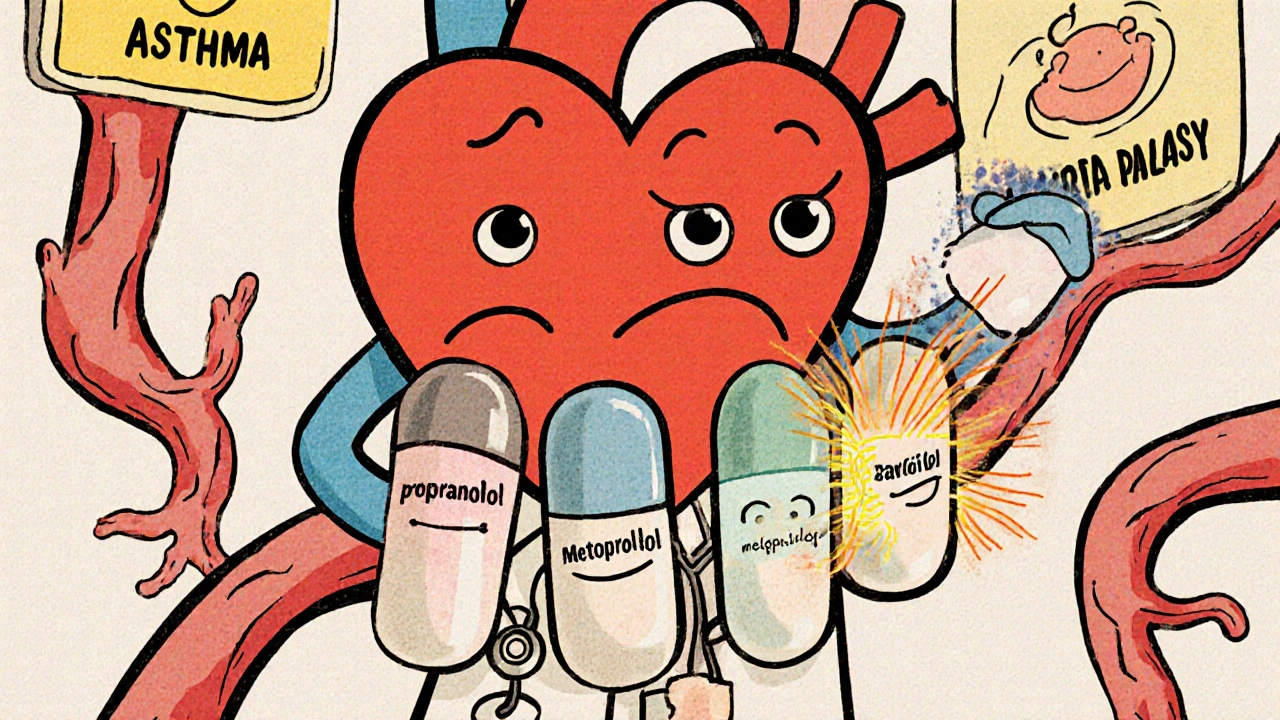Beta-blockers aren't all the same-each type has unique effects on the heart, lungs, and blood vessels. Learn how carvedilol, nebivolol, metoprolol, and propranolol differ, why drug choice matters, and what to watch for with side effects and interactions.
Propranolol: What It Is, How It Works, and What You Need to Know
When you hear propranolol, a beta blocker medication used to treat high blood pressure, heart rhythm issues, and anxiety. Also known as Inderal, it's one of the most prescribed drugs in its class for both physical and emotional stress responses. Unlike painkillers that mask symptoms, propranolol works on the root cause—slowing your heart rate and lowering blood pressure by blocking adrenaline. That’s why it’s not just for heart patients. Many people use it to calm the physical side of anxiety—shaky hands, rapid heartbeat, or sweating before a presentation or performance.
It’s also used for migraine prevention, a daily medication that reduces frequency and severity of headaches, and even for managing essential tremor, a nervous system disorder causing involuntary shaking. What makes propranolol different from other beta blockers? It crosses the blood-brain barrier, which is why it affects both your body and your mind. That’s why doctors sometimes choose it over other options when anxiety is part of the picture.
But it’s not a one-size-fits-all drug. People with asthma, very low heart rate, or certain types of heart failure need to be careful. It can mask signs of low blood sugar in diabetics, so monitoring is key. And while it’s often taken daily, some use it only before stressful events—like public speaking or flying. The dose depends on what you’re treating, how your body reacts, and whether you’re taking it with other meds.
You’ll find posts here that compare propranolol to other heart and anxiety meds, break down real side effects people actually experience, and explain how it fits into long-term health plans. Some people use it for years without issue. Others switch after a few months because of fatigue or dizziness. The goal isn’t to tell you what to do—but to give you the facts so you can talk to your doctor with confidence.
Below, you’ll see real comparisons with other drugs, user-focused safety tips, and clear explanations of how propranolol fits into broader treatment plans—for heart health, mental well-being, and beyond. No fluff. Just what matters when you’re trying to understand if this drug is right for you.

